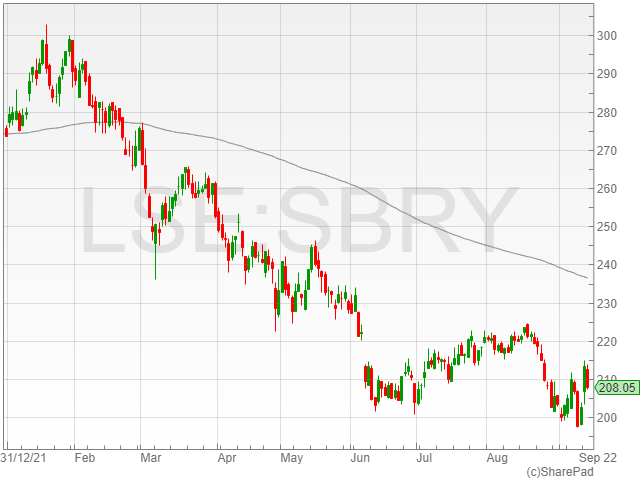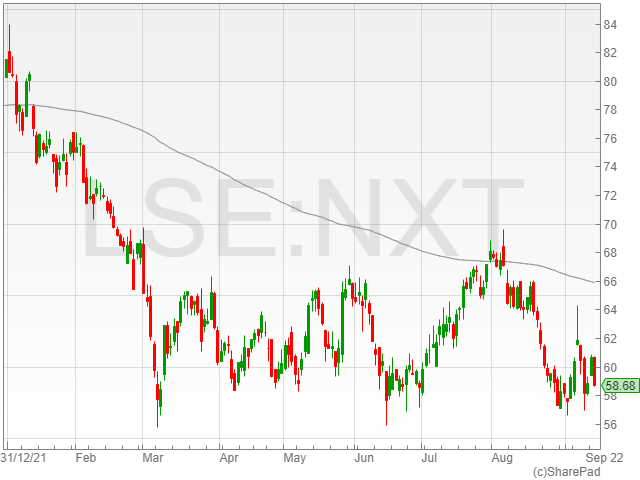US CPI inflation dropped to 8.3% from 8.5% in August, however the figure came in above analyst expectations of 8.1% and month-on-month prices excluding excluding food and fuel rose 0.6%.
The FTSE 100 plunged in line with global equities as markets adjusted for even more sharp rate hikes.
US stocks opened on a pessimistic note, with the Dow Jones falling 1.9% to 31,762.1, the S&P 500 sliding 2.3% to 4,014.9 and the NASDAQ dropping 3.1% to 11,886.
US Federal Reserve chair Jerome Powell confirmed hawkish sentiment at the Jackson Hole convention last month, announcing he would continue to hike rates until inflation was far closer to the Fed’s 2% aim.
“Inflation is running well above 2%, and high inflation has continued to spread through the economy. While the lower inflation readings for July are certainly welcome, a single month’s improvement falls far short of what the committee will need to see before we are confident that inflation is moving down,” said Powell.
He added at the conference that the Fed’s decision would be based on economic data from August, including the inflation report.
“We our moving our policy stance purposefully to a level that will be sufficiently restrictive to return inflation to 2%. Our decision at the September meeting will depend on the totality of the incoming data and the evolving outlook.”
Investors had hopes pinned on lower inflation to dissuade Powell from an aggressive rates move. However, it appears the latest report will do little to slow the pace of rate hikes at the next policy meeting.
Supermarkets
Supermarket stocks fell to the bottom of the index, with the cost of living crisis driving customers away from higher end grocers to discounters as food inflation soars.
Kantar announced Morrisons had lost its spot as a Big 4 grocer, and had been replaced by German budget retailer Aldi.
“The appeal of the German discounters continues to grow as household budgets are increasingly squeezed. This presents a challenge to Tesco and Sainsbury’s too,” said AJ Bell investment director Russ Mould.
“The fact that Aldi and Lidl offer not only bargain prices but also decent quality products and produce makes the established players jobs much harder.”
Sainsbury’s shares fell 2.7% to 207.5p and Tesco shares dropped 3.4% to 244.3p.

Ocado shares tumbled to the bottom of the FTSE 100, spiralling 13% to 691.5p after the supermarket reported lower sales and rising energy costs in its pre-close FY 2022 trading update.
“We remain focussed on providing Ocado Retail customers with the best possible value to help them navigate the cost of living crisis, and are encouraged by the positive underlying trends in the business which underline the value of Ocado’s differentiated proposition to customers,” said Ocado Retail chairman Tim Steiner.
“As consumer spending stabilises, we expect Ocado Retail will again deliver attractive and accelerating growth in sales and a strong recovery in profitability.”
“For … these reasons, we are optimistic for the future even while recognising the challenges that higher energy bills and other inflationary pressures are creating for our customers today.”
Retail
Retail shares also felt the blow of higher interest rates, with the news sending fears of lower consumer spending through the roof.
Kingfisher shares slid 3.8% to 247.1p, Next fell 3.1% to 5,871p and JD Sports Fashion decreased 2.8% to 127.7p.

